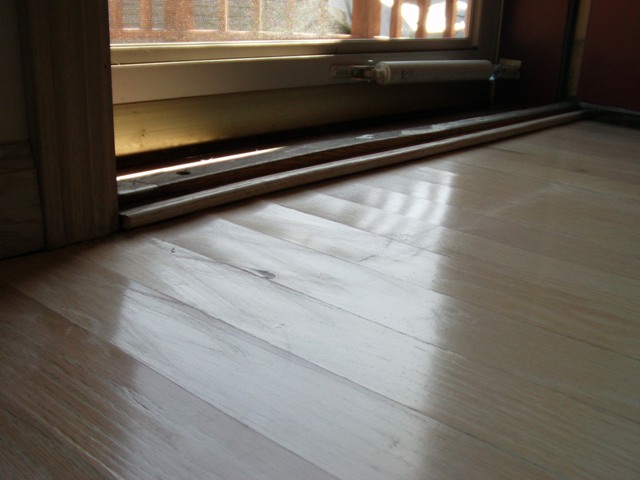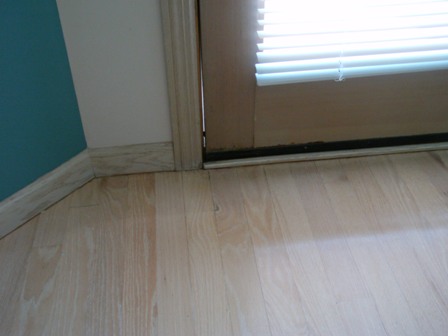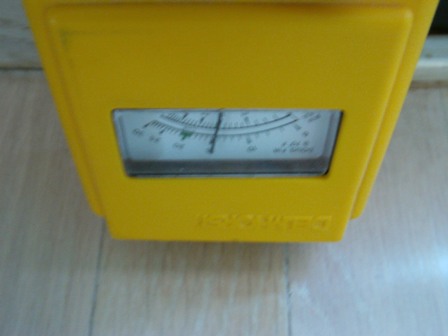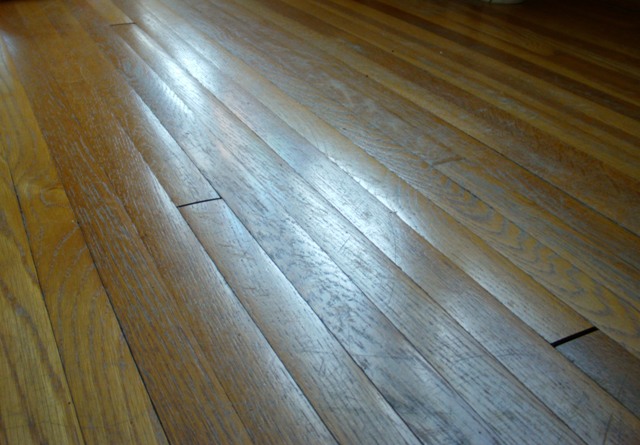Wood Floors Buckling
Ah, Screen Doors!
Sing it, Frankie..
"The Summer Wind Came Blowin' In..."

..and now we have a wood floors buckling problem.
There are wood floors buckling all across this great land of ours. Screen doors are just one common reason why.
Let me lay out the set up for this all too common wood floor problem.
The door happens to face in the same direction from which most storms blow in.
The interior door is open or ajar,
(and why wouldn't it be on a warm summer day, right?)
In the above photo, however, the real issue is weather stripping
or the lack, thereof.
See the daylight shining through the jamb?

The door is entirely closed.
It's also entirely wood. Not the best exterior door for this exposure.
Weather stripping will fill the gap, but a more permanent solution, in this case,
would be to replace the wood exterior door with something that does not warp.
So, before shopping, consider:
-what direction the door is facing, and
-the integrity of the exterior door inside it.
To avoid wood floor problems, always inspect and replace the exterior door FIRST, if need be.
Moisture Meter Reading--15%

8% was the moisture reading everywhere else on this particular floor.
Any time we ask a wood floor to move more than 3% in either direction of its normal relative moisture content, one of two things will happen:
buckling or gapping.
I have noticed Oak does a better job of "returning". My guess is it has to do with the hard grain and soft grain composition achieved with seasonal growth swings.
Denser woods, in my opinion, don't come back as well. I call it explosive. Moisture will blow the boards side to side just like Oak,
but the cracks will be bigger than Oak when completely dry.
Now that this floor has moved 7% higher, cracks (and squeaks,) will appear when it returns to a flat position, even though
it is a Red Oak floor. 7% is a serious difference.
So, class, when you see wood floors buckling, how will we know when these floors are dry?
That's right, when it is flat.
DO NOT SAND THE FLOOR UNTIL IT IS FLAT!
otherwise, you get this...

A Crowned Wood Floor.
Which brings us to yet another item on my list of 100 Ways to Wreck a Wood Floor.
OR
Return to Wood Floor Problems from Wood Floors Buckling




New! Comments
Have your say about what you just read! Leave me a comment in the box below.